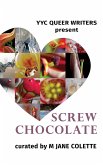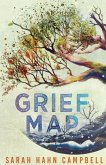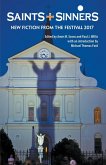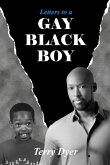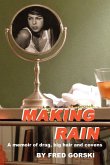Charles Lamb
Miscellaneous Essays
Charles Lamb
Miscellaneous Essays
- Broschiertes Buch
- Merkliste
- Auf die Merkliste
- Bewerten Bewerten
- Teilen
- Produkt teilen
- Produkterinnerung
- Produkterinnerung
Charles Lamb (1775 1834) was one of the great masters of the essay, at a time when the essay was a powerful and influential literary form.
Andere Kunden interessierten sich auch für
![Screw Chocolate Screw Chocolate]() M. Jane ColetteScrew Chocolate14,99 €
M. Jane ColetteScrew Chocolate14,99 €![Grief Map Grief Map]() Sarah Hahn CampbellGrief Map14,99 €
Sarah Hahn CampbellGrief Map14,99 €![Saints+Sinners 2017 Saints+Sinners 2017]() Saints+Sinners 201719,99 €
Saints+Sinners 201719,99 €![Letters to a GAY BLACK BOY Letters to a GAY BLACK BOY]() Terry DyerLetters to a GAY BLACK BOY17,99 €
Terry DyerLetters to a GAY BLACK BOY17,99 €![One Life Many Worlds One Life Many Worlds]() Stephen KarakashianOne Life Many Worlds15,99 €
Stephen KarakashianOne Life Many Worlds15,99 €![The Best Strangers in the World The Best Strangers in the World]() Ari ShapiroThe Best Strangers in the World17,99 €
Ari ShapiroThe Best Strangers in the World17,99 €![Making Rain Making Rain]() Fred GorskiMaking Rain14,99 €
Fred GorskiMaking Rain14,99 €-
-
Charles Lamb (1775 1834) was one of the great masters of the essay, at a time when the essay was a powerful and influential literary form.
Hinweis: Dieser Artikel kann nur an eine deutsche Lieferadresse ausgeliefert werden.
Hinweis: Dieser Artikel kann nur an eine deutsche Lieferadresse ausgeliefert werden.
Produktdetails
- Produktdetails
- Verlag: Cambridge University Press
- Seitenzahl: 280
- Erscheinungstermin: 30. September 2008
- Englisch
- Abmessung: 203mm x 127mm x 17mm
- Gewicht: 340g
- ISBN-13: 9780521100885
- ISBN-10: 0521100887
- Artikelnr.: 25686532
- Herstellerkennzeichnung
- Libri GmbH
- Europaallee 1
- 36244 Bad Hersfeld
- gpsr@libri.de
- Verlag: Cambridge University Press
- Seitenzahl: 280
- Erscheinungstermin: 30. September 2008
- Englisch
- Abmessung: 203mm x 127mm x 17mm
- Gewicht: 340g
- ISBN-13: 9780521100885
- ISBN-10: 0521100887
- Artikelnr.: 25686532
- Herstellerkennzeichnung
- Libri GmbH
- Europaallee 1
- 36244 Bad Hersfeld
- gpsr@libri.de
Renowned English essayist, poet, and literary personality Charles Lamb (1775-1834) is well-known for his contributions to the Romantic era. Lamb was born in London on February 10, 1775, and had a difficult childhood filled with tragedies in his family, most notably his sister Mary Lamb's mental health issues. After Mary's tragic incident in 1796 caused their mother to pass away, Charles assumed responsibility for Mary's care. Lamb spent several decades working as a clerk for the East India Company, and during that time his writing career flourished. His collection of writings, "Essays of Elia" (1823) and "Last Essays of Elia" (1833), published under the pen name Elia, is well known. Engaging in active participation in the lively literary circles of his age, Lamb maintained friendships with notable individuals such as William Wordsworth and Samuel Taylor Coleridge. Charles Lamb's articles, which are praised for their charm, personal insights, and examination of the nuances of interpersonal interactions, are what have left an enduring impact.
1. Curious Fragments
2. On the Inconveniences Resulting from Being Hanged
3. On the Danger of Confounding Moral with Personal Deformity
with a Hint to those who have the Framing of Advertisements for Apprehending Offenders
4. On the Genius and Character of Hogarth: With some Remarks on a Passage of the Writings of the Late Mr Barry
5. On the Custom of Hissing at the Theatres, with some Account of a Club of Damned Authors
6. On Burial Societies and the Character of an Undertaker
7. On the Tragedies of Shakespeare, considered with Reference to their Fitness for Stage Representation
8. Edax on Appetite
9. Hospita on the Immoderate Indulgence of the Pleasures of the Palate
10. The Good Clerk, a Character with Some Account of the 'Complete English Tradesman'
11. Recollections of Christ's Hospital
12. On the Melancholy of Tailors
13. The Gentle Giantess
14. Letter to an Old Gentleman whose Education has been Neglected
15. Guy Faux
16. Nugæ Criticæ
17. The Illustrious Defunct
18. Unitarian Protests
19. Reflections in the Pillory
20. The Last Peach
21. A Popular Fallacy
22. Captain Starkey
23. An Autobiographical Sketch
24. The Death of Coleridge.
2. On the Inconveniences Resulting from Being Hanged
3. On the Danger of Confounding Moral with Personal Deformity
with a Hint to those who have the Framing of Advertisements for Apprehending Offenders
4. On the Genius and Character of Hogarth: With some Remarks on a Passage of the Writings of the Late Mr Barry
5. On the Custom of Hissing at the Theatres, with some Account of a Club of Damned Authors
6. On Burial Societies and the Character of an Undertaker
7. On the Tragedies of Shakespeare, considered with Reference to their Fitness for Stage Representation
8. Edax on Appetite
9. Hospita on the Immoderate Indulgence of the Pleasures of the Palate
10. The Good Clerk, a Character with Some Account of the 'Complete English Tradesman'
11. Recollections of Christ's Hospital
12. On the Melancholy of Tailors
13. The Gentle Giantess
14. Letter to an Old Gentleman whose Education has been Neglected
15. Guy Faux
16. Nugæ Criticæ
17. The Illustrious Defunct
18. Unitarian Protests
19. Reflections in the Pillory
20. The Last Peach
21. A Popular Fallacy
22. Captain Starkey
23. An Autobiographical Sketch
24. The Death of Coleridge.
1. Curious Fragments
2. On the Inconveniences Resulting from Being Hanged
3. On the Danger of Confounding Moral with Personal Deformity
with a Hint to those who have the Framing of Advertisements for Apprehending Offenders
4. On the Genius and Character of Hogarth: With some Remarks on a Passage of the Writings of the Late Mr Barry
5. On the Custom of Hissing at the Theatres, with some Account of a Club of Damned Authors
6. On Burial Societies and the Character of an Undertaker
7. On the Tragedies of Shakespeare, considered with Reference to their Fitness for Stage Representation
8. Edax on Appetite
9. Hospita on the Immoderate Indulgence of the Pleasures of the Palate
10. The Good Clerk, a Character with Some Account of the 'Complete English Tradesman'
11. Recollections of Christ's Hospital
12. On the Melancholy of Tailors
13. The Gentle Giantess
14. Letter to an Old Gentleman whose Education has been Neglected
15. Guy Faux
16. Nugæ Criticæ
17. The Illustrious Defunct
18. Unitarian Protests
19. Reflections in the Pillory
20. The Last Peach
21. A Popular Fallacy
22. Captain Starkey
23. An Autobiographical Sketch
24. The Death of Coleridge.
2. On the Inconveniences Resulting from Being Hanged
3. On the Danger of Confounding Moral with Personal Deformity
with a Hint to those who have the Framing of Advertisements for Apprehending Offenders
4. On the Genius and Character of Hogarth: With some Remarks on a Passage of the Writings of the Late Mr Barry
5. On the Custom of Hissing at the Theatres, with some Account of a Club of Damned Authors
6. On Burial Societies and the Character of an Undertaker
7. On the Tragedies of Shakespeare, considered with Reference to their Fitness for Stage Representation
8. Edax on Appetite
9. Hospita on the Immoderate Indulgence of the Pleasures of the Palate
10. The Good Clerk, a Character with Some Account of the 'Complete English Tradesman'
11. Recollections of Christ's Hospital
12. On the Melancholy of Tailors
13. The Gentle Giantess
14. Letter to an Old Gentleman whose Education has been Neglected
15. Guy Faux
16. Nugæ Criticæ
17. The Illustrious Defunct
18. Unitarian Protests
19. Reflections in the Pillory
20. The Last Peach
21. A Popular Fallacy
22. Captain Starkey
23. An Autobiographical Sketch
24. The Death of Coleridge.


